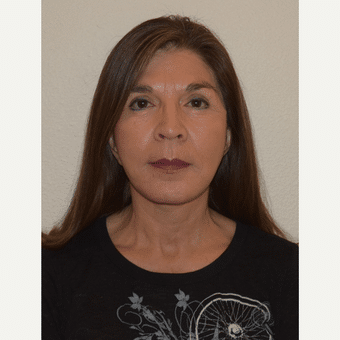
Enhancing the shape and balance of your face can make a powerful difference in how you look and feel. Many people turn to dermal fillers for quick, temporary results, but for those looking for something lasting, facial implants offer a more permanent solution.
Dr. Ryan Mitchell is a Board-Certified Facial Plastic Surgeon with over 20 years of experience helping patients achieve natural, harmonious results. As a Fellow of the American Academy of Cosmetic Surgery, his expertise ensures safe, high-quality outcomes tailored to your features.
While many procedures focus only on the skin's surface, true facial rejuvenation must also consider the structure beneath. Facial implants address those deeper features—bringing long-term balance, volume, and definition to the face.
What Are Facial Implants?
Facial implants are carefully designed medical devices made from biocompatible materials that work in harmony with the body. Their purpose is to enhance and refine the three-dimensional contours of the face. These implants are typically manufactured in shapes designed to augment specific regions, including the chin, cheeks, and nose. For patients with unique structural needs, custom implants may also be created.
By adding projection and support to key areas, facial implants help improve balance among the facial features and restore a more youthful, natural appearance. Unlike dermal fillers, which are gradually absorbed by the body and require regular reapplication, facial implants are placed surgically and become a long-lasting part of the facial anatomy. They offer a stable, permanent enhancement without the need for ongoing maintenance treatments.
The Benefits of Facial Implants vs. Dermal Fillers
Although both facial implants and dermal fillers are used to restore volume and enhance facial structure, they serve different roles and offer distinct advantages. Dermal fillers such as Radiesse, Sculptra, Restylane, and Juvederm are designed to add volume to specific areas of the face temporarily. These injectables are especially effective for superficial improvements, including lip enhancement, softening smile lines, and filling in hollows beneath the eyes. They are minimally invasive, performed in-office, and require little to no downtime. However, the results are temporary and typically last between six to eighteen months, which means ongoing maintenance is necessary to preserve the effect.
Facial implants offer a permanent solution by augmenting the underlying facial structure. They are ideal for patients seeking deeper volume restoration or correction of skeletal deficiencies such as a weak chin or flat cheeks. Unlike fillers, implants provide structural support and long-term results without the need for repeated treatments. While implant placement is a surgical procedure and involves a recovery period, the durability and stability of the outcome often make it the preferred option for those seeking a lasting transformation. In particular, there is no injectable filler that can match the long-term projection and definition offered by a chin implant.
Both treatments have their place in facial enhancement. Fillers are best suited for soft tissue refinement and short-term volume improvement, while implants are the treatment of choice for permanent, structural facial contouring.
Common Facial Implant Areas
Chin (Mandibular Implants)
Chin implants are the most commonly used facial implants. They enhance the projection and definition of the lower face, helping to achieve balance between the chin, nose, and midface. In many cases, patients with a large-looking nose and a weak chin will notice that after a chin implant, the nose appears smaller and more proportionate. A well-placed chin implant enhances both the jawline and overall facial symmetry.

Cheeks (Malar/Submalar Implants)

Cheek implants are often used to lift and volumize the midface. Patients with a flat or sunken appearance in this region benefit from implants that restore youthful contour and enhance the definition between the forehead, cheeks, and jawline. Midface implants bring a sense of balance across all facial thirds—upper, middle, and lower.
Facial Implant Materials
Two primary materials are used in facial implant procedures, each with its own set of advantages.
Silicone implants are smooth, flexible, and easy to insert. They offer the advantage of being easily removed or adjusted if needed. Their malleability makes them particularly suitable for straightforward anatomical enhancements.
Expanded Polytetrafluoroethylene (ePTFE), also known as Gortex, is a porous material that encourages tissue and bone ingrowth. This structure enables the implant to integrate seamlessly with your existing anatomy, thereby reducing the likelihood of movement and ensuring a stable fit. ePTFE feels more "bone-like" and is favored for its long-term stability. While it is less flexible than silicone, its porous nature makes it highly secure and stable once healed.
Both materials are biocompatible and widely accepted for use in cosmetics and reconstructive procedures.
Procedure & Recovery
Where and How It's Performed
Facial implant surgeries are typically performed at accredited outpatient surgical facilities. Most patients receive general anesthesia for comfort, though chin implants may occasionally be placed under local anesthesia in an office-based setting.
- Chin implants are most commonly placed through a small incision made externally beneath the chin. This reduces the risk of infection by avoiding the oral cavity and also improves control over implant positioning. The resulting scar is minimal and hidden under the chin. The procedure typically takes around 30 minutes to complete.
- Midfacial and mandibular implants are inserted through incisions made inside the mouth. This approach leaves no visible external scars. A small incision is made in the gum line above the teeth, and the area is carefully dissected. Once placed, implants are secured to the bone with one or two microscrews to ensure stability and longevity. Cheek and jaw implants typically require 45 to 60 minutes, as both sides of the face are treated, and the placement is more complex.
Recovery and Aftercare
Patients receive comprehensive post-operative instructions prior to surgery. Immediately after the procedure, you'll wear a compression bandage or garment to reduce swelling and support the implants. This is usually worn for 24 to 72 hours.
Discomfort is generally mild to moderate and managed with prescribed pain medication. Antibiotics are also administered to reduce the risk of infection. You'll be advised to follow a soft diet for the first couple of days, especially if your implants were placed through the mouth. In that case, you'll also use an oral antiseptic rinse four times daily to maintain hygiene.
Cool compresses are recommended for the first 48 hours—but avoid applying ice directly to the skin, especially if the area is numb, as it could lead to skin injury. Showering is permitted the next day, and sleeping with your head elevated will help minimize swelling.
If external sutures are present, they should be treated with antibiotic ointment at least three times daily for the first week. Strenuous activity should be avoided for two weeks. A follow-up appointment will be scheduled within one week to monitor healing and address any questions.
Frequently Asked Questions
Facial implants are intended to be permanent. Once healed and integrated into the facial structure, they become a part of your natural anatomy. While complications are rare, implants can be removed in cases of infection, malposition, or dissatisfaction.
Candidates include both younger individuals with underdeveloped facial features (like a weak chin or flat cheeks), and older patients experiencing facial volume loss due to aging. The ideal implant type and size will be determined based on your unique goals and your surgeon's recommendation.
In most cases, implants remain securely in place, especially when microscrews are used. ePTFE implants are even less likely to shift than silicone due to their porous, tissue-integrating structure.
All surgeries carry some risks. With facial implants, potential complications include:
- Bleeding or infection
- Unfavorable scarring
- Nerve or blood vessel damage
- Changes in skin sensation
- Implant shifting
- Need for revision surgery
- Allergic reactions or tissue irregularities
Your surgeon will review these risks in detail during your consultation and provide consent forms to ensure you are fully informed.
Why Choose Dr. Ryan Mitchell for Facial Implants?
Dr. Ryan Mitchell is a Board-Certified Facial Plastic Surgeon with extensive training and experience in facial anatomy, aesthetics, and surgical technique. He earned his medical degree from Des Moines University and completed a rigorous residency in Otolaryngology and Facial Plastic Surgery.
A Fellow of both the American Academy of Cosmetic Surgery and the American Osteopathic College of Otolaryngology Head and Neck Surgery, Dr. Mitchell is also a Clinical Faculty Instructor at Touro University. Practicing in the Las Vegas area since 2003, he was the first surgeon in Nevada to introduce Transumbilical "scarless" breast augmentation.
Dr. Mitchell is widely recognized for his commitment to safety, innovation, and precision, offering facial implant procedures that reflect both advanced skill and an artist's eye for natural results.
See these before and after images to get an idea of the success other patients have found with Dr. Mitchell and his team.
Before

After

Sorry, we couldn't find any posts. Please try a different search.
Testimonials
What People are Saying
Dr. Mitchell's patients love him and his team and are always incredibly happy with their results!
A skilled personable artist with integrity. I had Radiesse done on a few occassions with Dr. Mitchell with great results. He will recommend what he thinks will help the patient ...
Excellent doctor! Had Blepharoplasty done and he did an amazing job!! Perfect work. He is also very kind and takes his time to listen to your needs. He is also ...
Recently had liposuction done by Dr. Mitchell on a problem area in my mid section and I couldn't be more happy. The staff was great and the results are amazing. ...
Achieve Lasting Facial Balance in Henderson, NV
Facial implants provide a lasting solution for enhancing facial structure, restoring lost volume, and correcting age-related or congenital facial imbalances. Whether you're looking to define a recessed chin or add fullness to the cheeks, implants deliver stable, natural-looking results that surpass what temporary fillers can achieve.
To learn whether facial implants are right for you, schedule a consultation with Dr. Mitchell. Contact us today at 702-376-3095 to take the first step toward a more confident and balanced appearance. We're here to support you with expert care and personalized guidance.